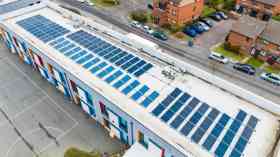Established in 1981, Micro Computer Consultants Limited (MCC Digital) are one of the UK’s most experienced Apple Authorised Education Speci
Supplier Focus
Latest Supplier News
Borg & Overström is a UK manufacturer of premium drinking water solutions. For over 20 years Borg & Overström has developed sustainable, bottle-less, hygienic, drinking water dispensers with the aim to provide exceptional, safe, self-service drinking water into schools, universities, workplaces and communal spaces.

 The new computing curriculum came into effect in September 2014. ICT, as it was formally known, was replaced by a new ‘computing’ curriculum including coding lessons for children as young as five.
The new computing curriculum came into effect in September 2014. ICT, as it was formally known, was replaced by a new ‘computing’ curriculum including coding lessons for children as young as five.








